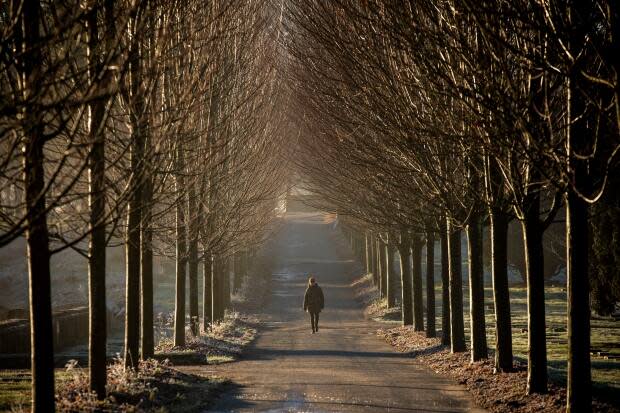Hospitalizations creeping up, as B.C. announces 542 new cases of COVID-19 and 7 more deaths

B.C. health officials announced 542 new cases of COVID-19 and seven more deaths on Wednesday as the number of patients in hospital begins to creep back up again.
In a written statement, Provincial Health Officer Dr. Bonnie Henry and Health Minister Adrian Dix put the number of hospitalized patients at 246 people, 64 of whom are in intensive care.
The number of people in hospital with the disease has been slowly inching up for the last two weeks after a steady decline that began January, now hitting levels about 13 per cent higher than the low point seen on Feb. 19.
Meanwhile, the seven-day rolling average of new cases continues to climb and is now about 25 per cent higher than it was two weeks ago.
In light of those trends, Henry and Dix signalled that current restrictions on everyday life will not be lifted in the near future — or at least not until a much larger portion of the population has been vaccinated.
"More people vaccinated — whether in Nanaimo, Nelson or North Vancouver — makes all of us safer. Until we have that next level of community protection, so does staying the course with our safety measures, staying small and local. Let's keep going and get to those post-pandemic days," they said.
So far, 289,809 doses of a COVID-19 vaccine have been administered, including 86,616 second doses.
A total of 1,372 people in B.C. have lost their lives to COVID-19 since the pandemic began, out of 81,909 confirmed cases.
There are currently 4,654 active cases of coronavirus in the province.
Public health is monitoring 8,617 people across B.C. who are in self-isolation because of COVID-19 exposure, the highest number since Jan. 8. A total of 75,819 people who tested positive have recovered.
Another 18 cases of variants of concern have been confirmed in B.C. for a total of 200 to date. That includes 176 cases of the variant first identified in the U.K. and 24 of the variant first reported in South Africa.
There have been no new outbreaks in health-care facilities.
Accelerated vaccination timeline
Henry has said that any eligible adult who wants a COVID-19 vaccine in British Columbia should be able to receive their first dose by the end of July, in light of the approval of the new AstraZeneca-Oxford vaccine and the decision to delay second doses.
Health officials announced the accelerated timeline Monday as the province moved into the second phase of its vaccine rollout plan.
That plan is based on a controversial decision to space out first and second doses by 16 weeks, a much longer interval than what is recommended by the vaccines' manufacturers.
On Wednesday, however, the National Advisory Council on Immunization and Canada's Council of Chief Medical Officers of Health endorsed B.C.'s plan, and B.C. officials said they were pleased at the news.
"Our goal is to protect as many people as possible, as quickly as possible, through the available COVID-19 vaccines. With a single primer dose, these vaccines are helping to stop outbreaks and reduce serious illness and death," Henry and Dix said.
"Setting the second booster dose at 16 weeks allows us to expand the number of people who will have access to these safe and effective vaccines, and may provide more durable and longer lasting protection."
B.C. seniors 80 and older, Indigenous seniors 65 and older, hospital staff and medical specialists, vulnerable populations living and working in shared settings, and staff providing in-home support to seniors will begin getting their shots this month.
More than 19,200 First Nations people have received their first dose of either the Moderna or Pfizer vaccines and 5,258 have received their second dose. In total, 24,515 Indigenous people in 113 communities have received a vaccine.
But some Indigenous leaders say it's not without mishaps, including a lack communication, racism and outstanding questions about vaccinating urban community members.
The province's vaccination plan is focused on inoculating high-risk people and most elderly populations by April. Younger age groups will follow in the spring and summer.
CBC British Columbia is hosting a town hall on March 10 to put your COVID-19 vaccine questions to expert guests, including Provincial Health Officer Dr. Bonnie Henry. You can find the details at cbc.ca/ourshot. Have a question about the vaccine, or the rollout plan in B.C.? Email us: bcasks@cbc.ca

